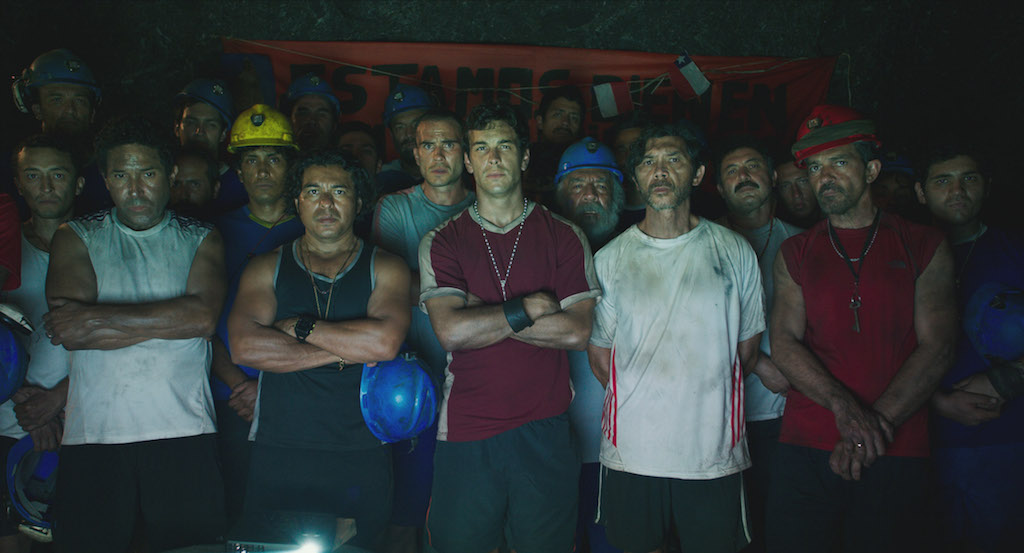
The 33, which tells the famous story of the 33 Chilean miners who were rescued after being trapped underground for 69 days, could’ve been a harrowing exploration of the working conditions of South American mine workers. Or it could’ve been a condemnation of the mining companies who exploit their poor laborers. Or it could’ve been a sharp examination of how an international media spotlight forced the Chilean government to be more dogged than they might otherwise have been in their attempt to rescue these men.
Or, it could be a crowd-pleasing, hero-filled, disaster and rescue film.
Any guesses which it is?
Look, it’s not like The 33 is completely devoid of substance. We do see a bit about the working conditions (dreadful!) and we are briefly shown an indifferent mine administrator who brushes off the concerns of foreman Don Lucho (Lou Diamond Phillips) when he suggests conditions aren’t safe. Mostly, though, this is feel-good stuff, where almost everyone involved is well-intentioned, stalwart, and honorable.
When the film starts, we quickly meet the miners, all of whom speak English in thick Spanish accents (convenient!): There’s Mario Sepúlveda (Antonio Banderas), a brave and kindly father and husband, who draws upon his military experience to raise morale and keep the men safe. There’s the young one, Álex (Mario Casas), whose wife is expecting a baby. There’s the troubled addict, Darío (Juan Pablo Raba), estranged from his fiery and devoted sister María (Juliette Binoche). There’s a would-be lothario (Oscar Nunez) who is cheating on his wife with a younger woman (somehow, our sympathies are meant to lie with the young mistress). There’s even—yes—a retiring miner (Gustavo Angarita) who is doing one last dig.
When the mountain collapses on them, it’s fairly exciting stuff, although it underscores one of the movie’s bigger problems: We already know how this story ends—that all the men survive—so their last second dodging of tons of falling rock isn’t quite as exciting as it might have otherwise been.
The movie shifts back and forth between the men underground and their dire predicament—barely three days worth of food supplies; no real hope that they’re going to be rescued—and the scene on the ground, where frantic families wait for any scrap of news. That’s where we meet Laurence Golborne (Rodrigo Santoro), who is Chile’s Minister of Mines and an altogether earnest and honorable man. It’s Golborne, inspired by Maria’s rabble-rousing advocacy, who encourages engineer Andre Sougarret (Gabriel Byrne) to keep digging, even after days have gone by, several drills have been destroyed, and all hope seems lost. Later, an American drilling crew, led by James Brolin (!), shows up to help save the day (lest you think the film is without its “f***-yeah, America!” moment.)
Director Patricia Riggen negotiates all the moving parts with relative skill. We find out just enough about each of the characters to care about them, and the actors—particularly Banderas, Diamond Phillips, and Binoche (whose casting as a working class Chilean woman is one of the great mysteries of the film)—give heartfelt performances.
Several months ago, I reviewed a film called Max that had a tear-jerky premise (a young boy bonding with his dead brother’s dog!) and yet couldn’t manage to jerk a single tear. No such concerns here. Corny as it was, I cried when the men were rescued. That being said, Riggen absolutely bungles the big reunion scene between María and her brother, which should have been the most moving of the bunch. It’s a classic case where milking something for all its worth makes it less effective. A handy metaphor, of course, for this entire film.
